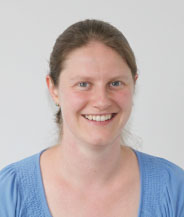Otto Hahn Medal for Isabella Gierz from CFEL MPSD
Isabella Gierz was awarded the Otto Hahn Medal of the Max Planck Society for the discovery of a giant spin splitting on the surface of a semiconductor

The Rashba-Bychkov effect describes how the spin-degeneracy in different two-dimensional systems such as, quantum well states in semiconductor heterojunctions or surface states on noble metal surfaces can be lifted by the spin-orbit interaction in case of a broken space inversion symmetry. The resulting band structure consists of two nearly parabolic bands with opposite spin-polarization that cross at time-reversal invariant points of the Brillouin zone. The spin-polarized band structure bares great potential for applications as a spin field effect transistor. Furthermore, theoretical predictions for a superconducting state have been made, and these systems are prime candidates for the observation of the spin Hall effect. Different two-dimensional systems are best compared using the so-called Rashba-parameter, a measure for the size of the spin splitting. The biggest spin splitting measured so far has been detected in two-dimensional bismuth-silver surface alloys. There, the giant spin splitting can be traced back to (1) the presence of heavy atoms with a strong spin-orbit coupling and (2) the corrugation of the two-dimensional alloy that leads to a strong asymmetry of the electron cloud in the vicinity of the nucleus. However, the application of these surface alloys in a spin field effect transistor is prevented by the presence of spin-degenerate three-dimensional states from the silver substrate. In collaboration with scientists at the Max Planck Institute for Solid State Research in Stuttgart and the Max Planck Institute for Microstructure Physics in Halle, Isabella Gierz was able to transfer the concept of a giant spin splitting to a semiconducting silicon substrate [see Physical Review Letters 103, 046803 (2009)]. For her discovery of a giant spin splitting on the surface of a semiconductor, Isabella Gierz was honored with the Otto Hahn Medal of the Max Planck Society.